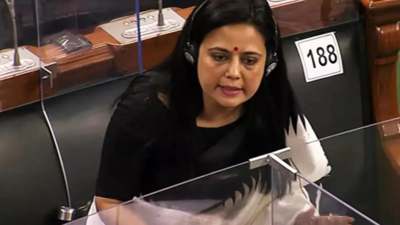The Lokpal, India’s formidable anti-corruption watchdog, has unleashed the might of the Central Bureau of Investigation (CBI) to probe the cash-for-query allegations against Trinamool Congress (TMC) leader Mahua Moitra.
This explosive development has sent shockwaves through the political landscape, as the CBI readies to scrutinize the allegations that Moitra, a Member of Parliament (MP), accepted bribes in exchange for raising specific questions in the Lok Sabha, India’s lower house of Parliament.
The Lokpal’s directive, issued under Section 20 (3) (a), tasks the CBI with conducting a comprehensive investigation into the complaint against Moitra. The premier investigative agency has been granted a six-month deadline to submit its report, with periodical updates expected along the way, ensuring transparency and accountability throughout the process.
Allegations and Denials
At the crux of this controversy lies a signed affidavit submitted by businessman Darshan Hiranandani to a Lok Sabha committee. In this damning document, Hiranandani confessed to using Moitra’s parliamentary login credentials to ask questions specifically targeting business tycoon Gautam Adani’s interests, particularly regarding the allocation of capacity at the Adani group’s Dhamra LNG import facility in Odisha.
The allegations suggest that Moitra’s questions in the Lok Sabha were intended to advance the interests of Hiranandani, who is associated with the Adani group, purportedly in exchange for compensation or benefits. This alleged quid pro quo arrangement has raised serious concerns about the integrity of parliamentary proceedings and the ethical conduct expected of elected representatives.

Moitra, however, has vehemently denied any wrongdoing, dismissing the bribery charges as baseless. She claims to be a victim of a smear campaign for raising legitimate questions about the Adani group’s deals. Nevertheless, Moitra has admitted to sharing her parliamentary login details with Hiranandani, whom she refers to as her “friend,” a revelation that has further fueled the controversy.
Lokpal’s Cash-for-Query Conundrum
The cash-for-query scandal has shed light on a troubling practice that has plagued India’s Parliament for years. The misuse of parliamentary privileges, where MPs accept bribes or inducements to ask specific questions, undermines the democratic process and erodes public trust in elected representatives.
While MPs have the right to raise questions in both houses of Parliament on various issues and matters of public interest, the practice of cash-for-query subverts this fundamental right. When MPs use their position to advance personal or vested interests, it amounts to a breach of privilege and contempt of the House.
In the past, such complaints have been referred to the Committee of Privileges for investigation. The committee examines the allegations, gathers evidence, and submits its findings in a report, recommending appropriate action against the MPs found guilty of such unethical practices.
The Watchdog’s Bite
The Lokpal’s decision to involve the CBI in the Mahua Moitra case underscores the gravity of the allegations and the commitment to upholding the integrity of India’s democratic institutions. The Lokpal, India’s anti-corruption ombudsman, plays a crucial role in addressing such allegations and ensuring that elected representatives are held accountable for their actions.
As the premier investigative agency, the CBI’s involvement lends significant weight to the probe. The agency will thoroughly examine all aspects of the complaint, including the alleged financial transactions, communication records, and any other evidence that may support or refute the claims against Moitra.

The CBI‘s investigation is expected to be comprehensive and impartial, leaving no stone unturned in its pursuit of the truth. The six-month deadline imposed by the Lokpal ensures that the probe remains focused and timely, providing periodic updates on the progress and findings.
The cash-for-query case involving Mahua Moitra has far-reaching implications that extend beyond the confines of the TMC or the Lok Sabha. It has ignited a broader discussion about the integrity of parliamentary processes and the ethical conduct expected of elected representatives across the political spectrum.
The media, civil society organizations, and citizens have been closely monitoring the developments, eager to see transparency and accountability prevail. Public scrutiny and awareness act as deterrents against corrupt practices, ensuring that elected officials understand the consequences of breaching the trust placed in them by their constituents.
As the investigation unfolds, all eyes will be on the CBI’s findings, which could have profound implications for Moitra’s political career and the broader issue of cash-for-query practices in India’s Parliament. The outcome of this case may serve as a catalyst for reforms and stricter measures to safeguard the sanctity of parliamentary proceedings.

Implications and Way Forward
The cash-for-query scandal involving Mahua Moitra has emerged as a watershed moment in India’s political landscape. It has not only put the spotlight on alleged unethical practices but has also underscored the importance of robust institutions like the Lokpal and the CBI in upholding the principles of transparency, accountability, and the rule of law.
As the nation watches with bated breath, the CBI’s investigation will be a litmus test for India’s commitment to rooting out corruption and restoring public confidence in the democratic process. The outcome of this case will resonate far beyond the halls of Parliament, serving as a reminder that no one, regardless of their political affiliation or position, is above the law.
In the end, the cash-for-query scandal may prove to be a defining moment in India’s journey towards a more transparent and accountable democracy, where the voices of the people are heard and respected, and the integrity of institutions is upheld with unwavering resolve.
Also Read: Supreme Court Demands Unfiltered Data on 1,000+ Electoral Bonds from SBI











